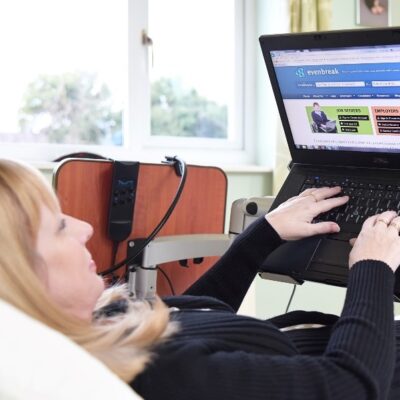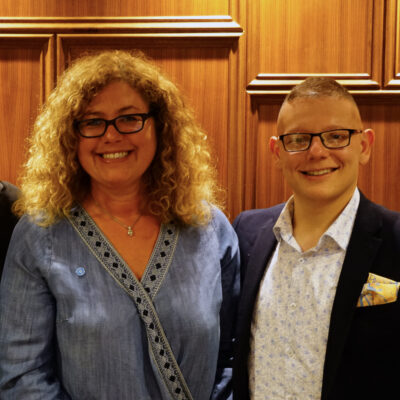Kind of a conundrum growth isn’t it? Should all social enterprises want to grow because all social enterprises should want to increase their social or environmental impact? Should growth just happen organically as your sales increase or can you plan growth?
Growth was the theme of iSE’s ‘Stronger Together’ conference recently. iSE is a social enterprise support organisation based in Birmingham, and also the home of the local Human Lending Library. They asked us to run a session at the conference and because we knew we’d have attendees who were at different stages of growth, we wanted different levels of experience represented on the panel.
Before she joined us recently as CEO, Karen Lynch spent a decade at the bottled water social enterprise Belu. The company had accrued £1.9m of debt and Karen had been recruited to see if she could find a buyer. Instead, she saw opportunity. When she left ten years later, Belu had handed over £5m of profits to Water Aid (CHECK) to deliver clean water and sanitation projects.
Joining Karen on the panel was Gabriela Matouskova, CEO of the health and wellbeing social enterprise Hope For The Community (H4C). Gabriela had volunteered some time with H4C while working for CUSE, the social enterprise business support organisation at Coventry University. Gabriela is a more recent leader in the early stages of growth. At the beginning of 2020, she left CUSE to become deputy CEO at H4C, stepping up to CEO in August last year.
You can watch the whole 45 minute session here, but we’ve pulled out some of the key takeaways below.
Identifying growth areas
For Karen, identifying where Belu could achieve growth was important. ‘We decided the HORECA (hotels, restaurants, catering) sector would be our space. If we’d followed the data on the market, we would have done the 500ml bottles and gone into supermarkets because that’s where the volume is. I see a lot of entrepreneurs who identify the biggest chunk of a market and decide that’s where they are going. But if you’re small, you want to own a niche, and you want to grow out of that niche,” said Karen.
Because Gabriela has volunteered with H4C for two years, she knew how effective the health and wellbeing programmes they ran were because people were telling her how much they had changed their lives for the better. She could see areas ripe for growth. “We were able to develop new products. We identified new partners (mainly public sector) and were upselling to existing partners; because our offer changed from face-to-face to digital there was a lot more to offer.
“There was also diversification of the product and diversification in the market: when we built our digital platform I ensured it was a white label platform that other organisations could use themselves. If you can stop thinking about your linear product and your linear market there are so many opportunities out there, but do weigh them up and ensure they are the right thing for you to do that particular moment in time,” said Gabriela.
Growth that comes from your values
In 2011 Belu became a disruptor in the water industry by being vocal about what was wrong with the industry – chiefly the impact of all that plastic on the environment. But Karen told the audience one of the keys to successful growth was to stop saying what was wrong so much and to start focusing on the more environmentally friendly business model solution Belu’s business model was offering. This kind of approach created ‘a brand pull’.
“When people are looking towards you, naturally listening, naturally interested, feel good about it and maybe want to be a part of it then the need to sell disappears and you go straight into negotiation. Because the assumption is it’s the right thing to do.
“The secret to Belu’s success has been to take that positivity and build it into collaborations and partnerships at every level of the business model. You don’t want to be in buyer/seller relationships because they come and go and then you have to pitch again. It was applying a values based approach at every level of the business to reinvent water, which was, at that time, a commodity,” said Karen.
How to grow as a leader
It is often said that ‘being an entrepreneur can be lonely’. For Gabriela, who became a leader during a socially distanced pandemic, it was especially true. So where can you find support? For Gabriela it started by meeting Karen through the Human Lending Library, who urged her to commit to her ideas about H4C. But Gabriela also advocated joining networks in your field of work. For her it was finding an enterprise development programme and consequently becoming a member of the Association of Mental Health Providers.
“Through this I have identified one of the things I really needed help with was around finance and I really wanted to be comfortable with the numbers so I had a finance mentor. I also have a growth coach that keeps me level when I get to points of feeling overwhelmed,” said Gabriela.
“I don’t think you will find any other sector where there is so much infrastructure for support,” said Karen. “But the responsibility sits with you as an individual to find the right support at the right time.”
Karen namechecked the following: PWC Social Entrepreneurs Club, Goldman Sachs 10,000 small businesses programme and of course, Social Enterprise UK.
How to plan growth
A handy list from Karen:
- Get all of your ideas down on paper.
- Be really clear about the ones you can do.
- Identify the high impact, low effort ones. Think: what are the right horses to back in this race to success?
- Make choices. It’s the key role of an entrepreneur – both yourself and your team have to trust you to make the right choices. Do that with a combination of data and instinct.
- Order your opportunities and be clear about which are the right ones and why.
- Don’t try to do too many things.
All of the above is an example of the kind of advice you can get from one of our 70 business mentors. To find out more, click here.
Pictured above: Gabriela Matouskova, Karen Lynch, Sarah Crawley CEO of iSE and Lee Mannion



